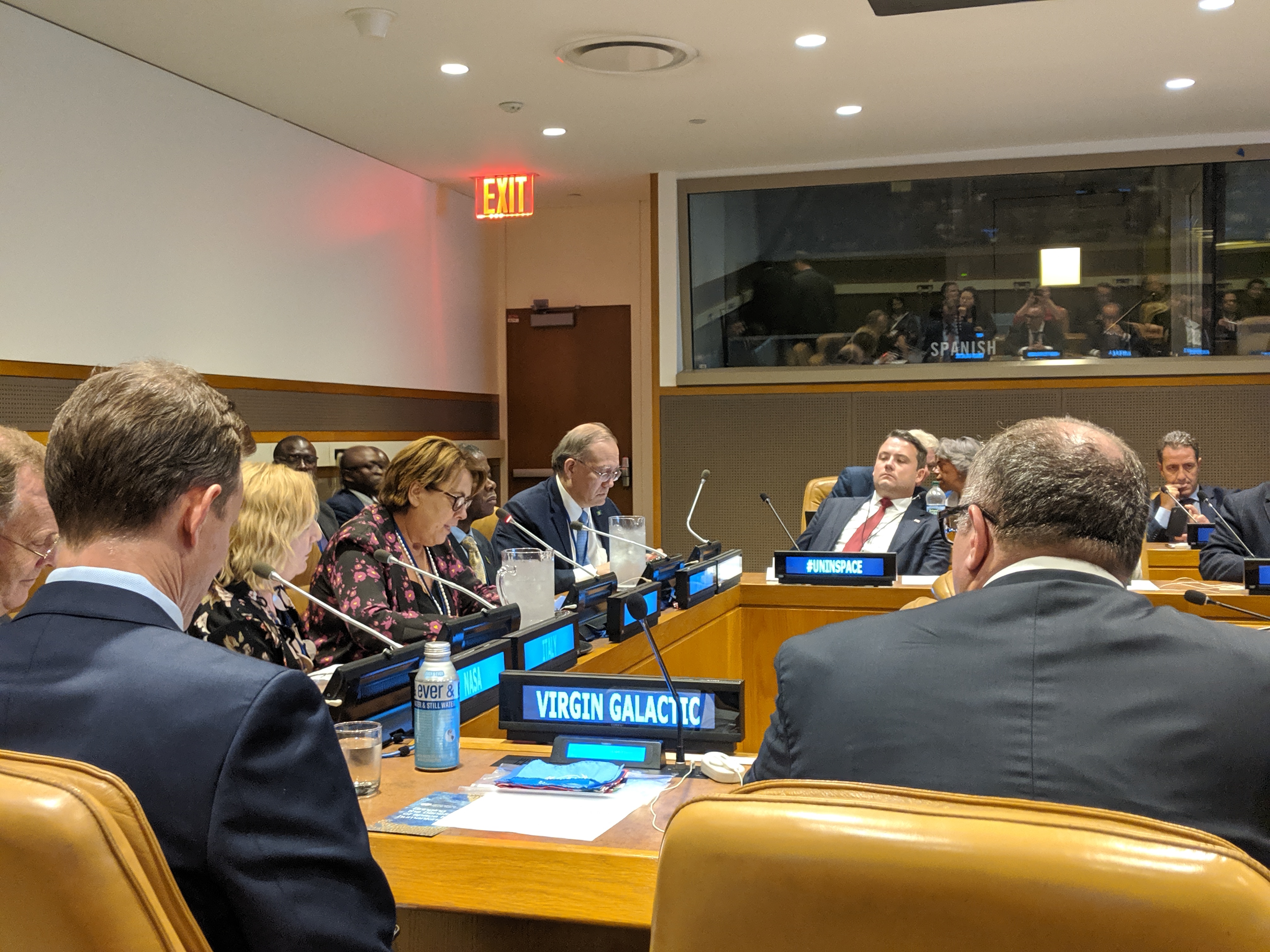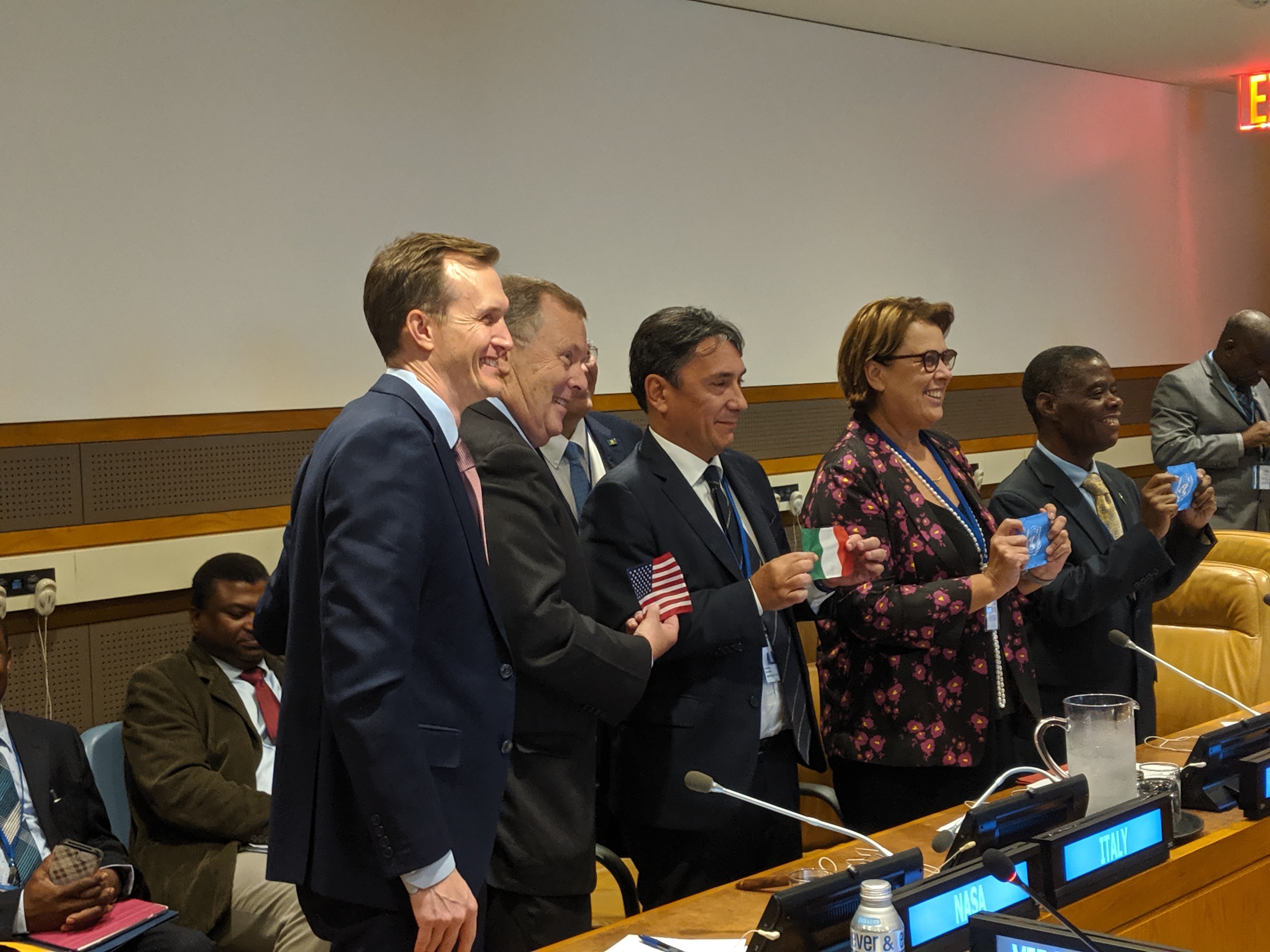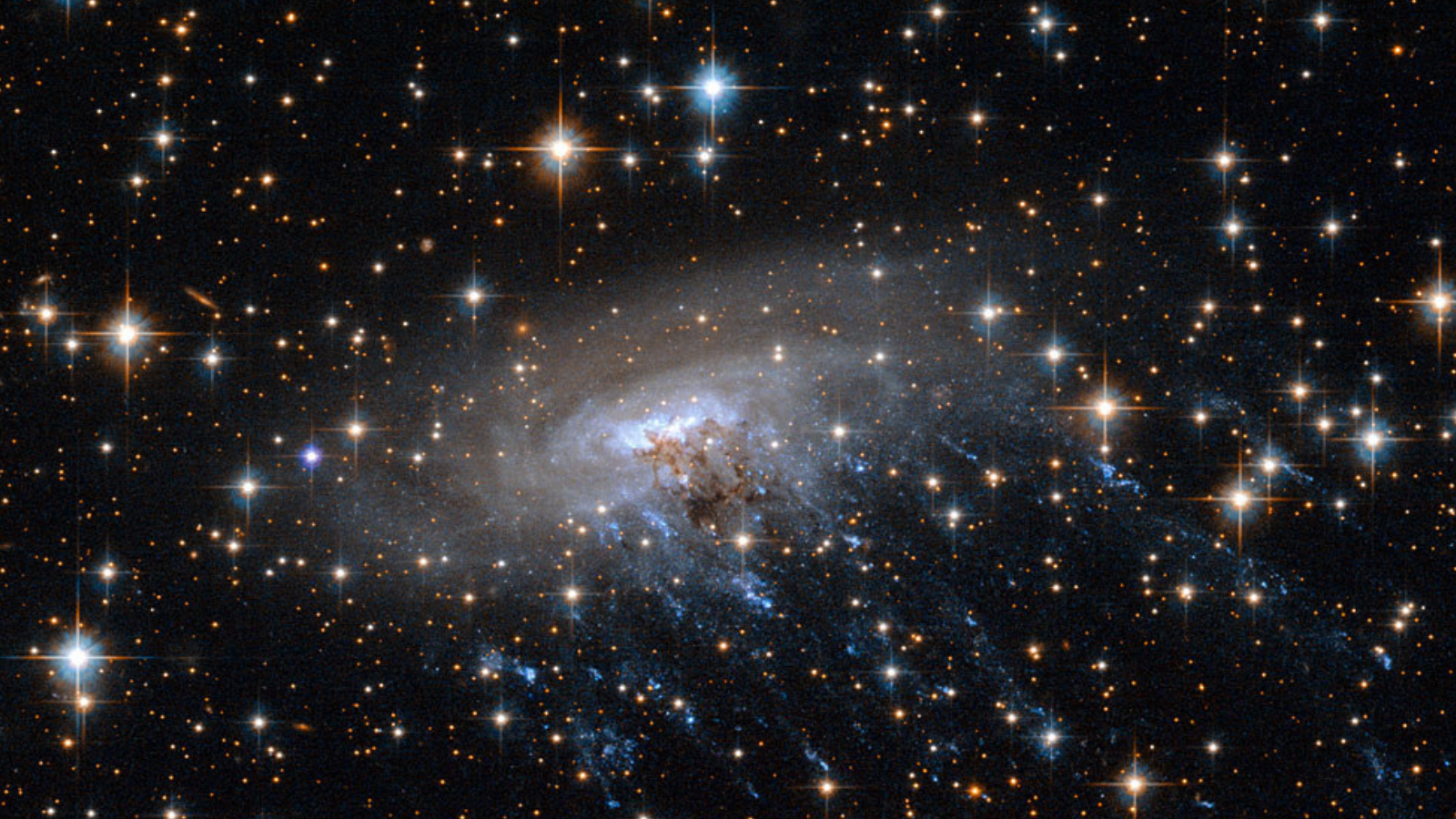With New Partnership, UN Aims to Make Space More Accessible to Developing Countries
Space can be for everyone.

Breaking space news, the latest updates on rocket launches, skywatching events and more!
You are now subscribed
Your newsletter sign-up was successful
Want to add more newsletters?

Delivered daily
Daily Newsletter
Breaking space news, the latest updates on rocket launches, skywatching events and more!

Once a month
Watch This Space
Sign up to our monthly entertainment newsletter to keep up with all our coverage of the latest sci-fi and space movies, tv shows, games and books.

Once a week
Night Sky This Week
Discover this week's must-see night sky events, moon phases, and stunning astrophotos. Sign up for our skywatching newsletter and explore the universe with us!

Twice a month
Strange New Words
Space.com's Sci-Fi Reader's Club. Read a sci-fi short story every month and join a virtual community of fellow science fiction fans!
NEW YORK -- Avio, an Italian aerospace company, has officially partnered with the United Nations Office for Outer Space Affairs (UNOOSA) to make space more accessible.
At the 74th session of the U.N. General Assembly (UNGA), UNOOSA welcomed Avio alongside representatives from Virgin Galactic, Maxar, NASA, the National Space Council, Italy and Zambia. The meeting, a side event at the UNGA, focused on how space can become more accessible, peaceful and entwined with efforts to mitigate climate change.
UNOOSA's partnership with Avio, announced on the day of the event (Sept. 23), is part of the office's Access to Space for All initiative, which they hope will make the benefits of space and space-based research available to people from every background and location. More specifically, the partnership with Avio aims to provide U.N. member states, especially developing countries, the opportunity to apply to put experiments on a satellite for free.
Related: Space2030: At the UN, World Leaders Create a Vision of Peace in Space
The cooperative effort would allow member states who are accepted to access satellite slots for 1U cubesats or aggregates, which would launch into low Earth orbit in October 2020. For each launch, those selected will be allotted about the same amount of payload space as there is on three 1U cubesats.
Avio has so far made satellite slots for three separate launches available on their VEGA launch vehicle. The partnership aims to support "technological learning and capacity-building," according to a statement.
"This project will provide selected institutions with a unique opportunity to launch their space technology free of charge, expanding access to the benefits of space," UNOOSA Director Simonetta Di Pippo said in the same statement.
Breaking space news, the latest updates on rocket launches, skywatching events and more!
Sustainable Development Goals
This partnership and the Access to Space for All initiative were discussed at the UNGA event within the larger context of the U.N. Sustainable Development Goals (SDG), which were set by the UNGA in 2015 for 2030.
"We analyzed the 17 sustainable development goals under the 2030 agenda for sustainable development and these 17 sustainable development goals, they have 169 targets," Di Pippo told Space.com at the UNGA side event. She described how they analyzed all 169 targets and "we find that [at a] minimum, 40 percent are fully reliant on space."
Di Pippo said further that this serves as evidence that member states do, in fact, rely heavily on space for their economies and societies as a whole. "Developing and emerging countries are getting more and more interested in being involved … so what we have to do is to help them, if you want, in a sort of bottom-up approach, where we help them in becoming new players in new spacefaring countries, but in a responsible manner."
Responsible spaceflight
In other words, UNOOSA hopes to support developing nations to become more involved in space activities for many reasons but specifically, in part, because it supports the 169 targets of the 2030 SDG. UNOOSA aims to increase space access in ways that Di Pippo describes as "responsible," meaning they will adhere to guidelines regarding issues such as "space junk" and climate change because, as Di Pippo said, "Space is also extremely important for climate action ... to maintain the scientific model, to be able to understand what's going on, how climate change is linked to these extreme disasters we're experiencing."
"Part of the challenge that we face … is that space has become so pervasive that it's invisible and we forget how important it is to every aspect of our daily lives. And if there's any silver lining to some of the issues that have been happening, it shows how important space and satellite infrastructure is to dealing with these giant global issues," Mike Gold, vice president of regulatory and policy at Maxar Technologies, told Space.com at the event.
- Space2030: At the UN, World Leaders Create a Vision of Peace in Space
- Peace in Space: World Leaders to Discuss Peaceful Uses of Space
- New Climate Report is Sobering but Strangely Hopeful
Follow Chelsea Gohd on Twitter @chelsea_gohd. Follow us on Twitter @Spacedotcom and on Facebook.


Chelsea “Foxanne” Gohd joined Space.com in 2018 and is now a Senior Writer, writing about everything from climate change to planetary science and human spaceflight in both articles and on-camera in videos. With a degree in Public Health and biological sciences, Chelsea has written and worked for institutions including the American Museum of Natural History, Scientific American, Discover Magazine Blog, Astronomy Magazine and Live Science. When not writing, editing or filming something space-y, Chelsea "Foxanne" Gohd is writing music and performing as Foxanne, even launching a song to space in 2021 with Inspiration4. You can follow her on Twitter @chelsea_gohd and @foxannemusic.

